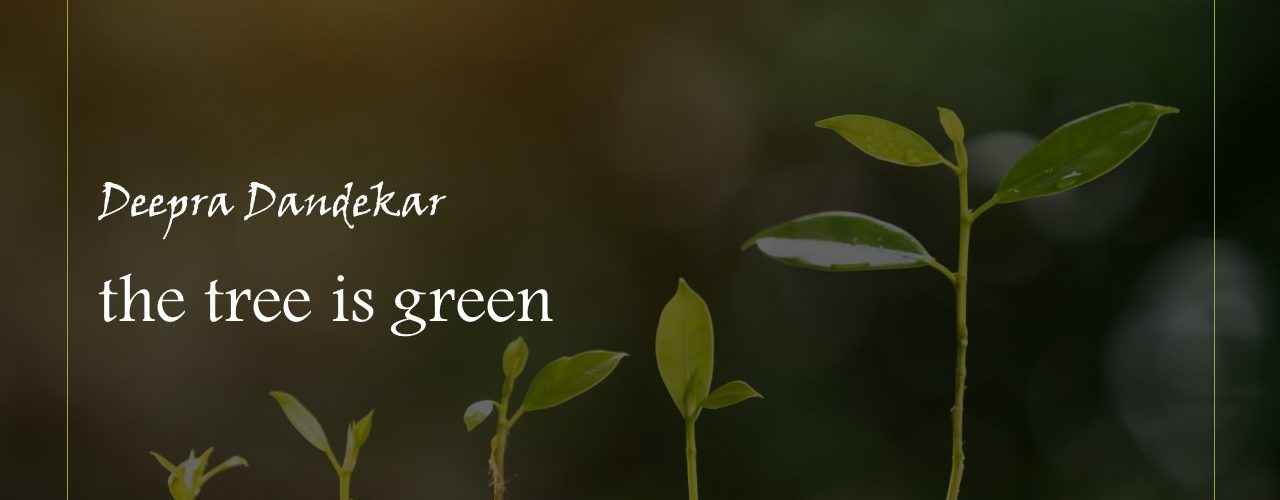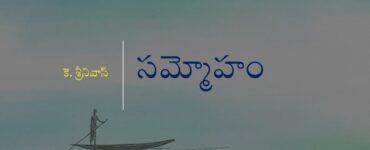For long, till I was about seven or so, I did not realize that hair-like extensions could be artificially attached to one’s original hair. As a child I thought, all colourful hair decorations that women wore, apart from flowers, were somehow ‘natural’—grown on their heads over time through medical or cosmetic interventions. My elder sister often ‘bleached’ her face, and I loved to witness these transformative sessions. After she washed off the shaving cream like substance, all the small hairs on her cheeks twinkled golden—lighter than her own skin colour. I loved to kiss her cheek immediately afterwards, for its alien ‘ammonia’ whiff. She was mightily pleased with these transformations, and so was I, believing that everything grew and developed naturally in the world with medical and cosmetic support. As far as head-hair was concerned, there wasn’t much that women around me did with their hair back in the seventies, unless they were film stars. But since I did not know any film stars and we did not have a TV at home, I dismissed the issue of their tremendously large hair that I sometimes saw pictures of in magazines, while waiting for my turn at the doctor’s clinic, as something similar to a hair-cap—like the trembling tinsel crowns worn by local Ram Lila stars. I guess I understood the logical similarity between wigs, caps, and Ram Lila crowns, but I knew nothing about wigs per se. Mostly an unobservant, self-absorbed, and introspective child from a conservative, middle-class family, with no spectacular curiosity about the world; not much shocked me—at least not enough to pitch me too deeply into questioning the validity of ‘artificial’ hair. Two events in my life rocked this complacent apathy. These two events, moreover, took place on the same day, overwhelming me with their intellectual input, and forcing me to rethink on issues like hair, the natural order, and the edibility of matter. It was a turning point in my life that I believe, began me on a journey towards the loss of innocence.
My mother and I often went off for jaunts in the city, when I was growing up in Delhi, and on that fateful day, we were going to the bookfair in Pragati Maidan. We usually took a bus (the number 100) that went via our home in Model Town to Mandi House, and then changed into the ‘plus-sign’ Mudrika at ITO. I loved these outings with my mother—she was more fun outside the house than inside it. Now, the bus, as was expected, was very crowded at that time of the morning. After my mother managed to get me lodged into a small corner of a seat, she found another seat further away. Left to myself, I looked around with interest at my seat companions. There were three of them there already, with me as the fourth occupant on the edge of the narrow bench. There was a man sitting next to the window with a big turban that smelled faintly of ghee mixed with sweat, and dust. Between us, there were his two goats. While the smaller goat sat neatly on the seat between us chewing, and introspecting meditatively to herself; the other one was bold, and stood combatively between her father and me, front legs akimbo, fixing me with a death stare. The two skinny-furry appendages under her chin wiggled threateningly at me, as the bus bumped along. Both goats chewed from bags tied to their necks. The standing goat also conversationally wiggled her upturned tail, which was thankfully turned to the turbaned father, letting out a steady stream of steamy black pebbles on the father’s feet. While the pebbles were being emitted, the standing goat continued to fix me with her cold, triumphant, baleful glare, while the other goat dozed companionably. I thought deeply about the subject of goats and their dangling chin appendages that I had never seen before. I tucked that acorn away, promising myself to take it up with my mother later.
Exactly at that very moment, the seat in front of us was freed, and before anyone could do anything, a hefty lady with many bangles and a big office bag containing a tall metal tiffin carrier, crashed into it, her hair plait thrown casually over the seat back. Her hair was woven with a hair extension that I did not know back then was a hair extension. Her plait ended in an impossibly bright, riotous hot-pink bunch of silk tassels that I had the opportunity of inspecting up close for the first time. I was later told that it was a common decorative hair extension, popular among Punjabi ladies, called a Parandi. But back then, I looked at the tassels with awestruck amazement and fascinated wonder. The pink tassels part of the Parandi, which I thought was the lady’s own, pink-coloured, silky hair, plopped with a small thud on the balefully-gazing goat’s head. So shocked was baleful gaze at this new turn of events, that her chewing ceased abruptly. Her tail twitching ever more hectically in delight, and the two skinny-furry appendages under her chin wobbled madly with tremendous excitement.
And then, to my horror, baleful gaze began eating the lady’s pink hair, with the lady completely oblivious to what went on in the world behind her. Baleful gaze chewed and chewed, glaring at me triumphantly, daring me to expose her secret to the dozing companion and turbaned father, his feet probably buried by now in little mountains of steamy pebbles. He did not budge from his position. Perhaps he was travel sick I thought, sympathetically. I was often travel sick. Baleful gaze in the meanwhile, taking advantage of this general disinterest in her activities, gradually chewed through the entire pink part of the Parandi, gently venturing now, to the black parts above. This was too much for me. I was about to tap the lady on her shoulder, since I thought she would be left with no hair at this rate—if baleful gaze was allowed to have her way; but I was too late. The lady who had climbed in at Timparpur—probably a state government employee, suddenly prepared to alight at the Rajpur Road bus stop, near the Old Secretariat. As she began pulling her bag, sweater, and shawl together, baleful gaze realized the game was over, and abruptly stopped chewing, looking around innocently. No one had noticed anything amiss in the metallic, diesel smelling, rattling bus, that was full of so many other sights and smells on a winter morning, like the smell of those hot pebbles for example. As the lady heaved and cleaved her way out of the bus, I craned my neck to catch a glimpse of her walking down the footpath. The end of her hair was in absolute tatters, wet with goat spit. I turned an accusing look at baleful gaze, and she glared back in mock innocence, with nothing to show for her guilt, but for a few strands of iridescent pink silk that hung from her chin, along with those wiggling appendages. The somewhat violent episode remained with me for some time—an episode that taught me not just about goats and Parandis, but also about the risk of wearing Parandis in busses when traveling with diverse populations, with a different compass about the edibility of matter.
The second episode took place on the same day, on our return journey. My mother and I had had a tiff during the day, when an ‘orange bar’ ice candy, I had insisted upon—wretched thing, had melted and fallen from its stick, first on the front of my sweater, and then on to the floor. Though my mother had tried to wash me down at a drinking water tap, everything about me continued to remain uncomfortably sticky that day. I was, moreover, miffed with my mother for being needlessly unsympathetic about my accident with the ‘orange bar’. In any case, we were on our way home, in the ‘plus-sign’ Mudrika from the Purana Qila bus stop near Pragati Maidan. It was, again, as expected, crowded inside. This time around, we were more bothered and agitated, since my mother now carried two or three hefty plastic bags full of new books—one plastic bag full of Russian fairy-tale books. I loved Russian books, and on that day, we had bought ‘The Humpbacked Horse’, written entirely in verse. I was itching to sit on my father’s lap in the evening, and turn the beautifully crafted, thick pages full of brightly coloured, foreign but yet familiar pictures of chubby-cheeked, kind-eyed Russian children called Dunyasha or Ivanoshka. But nothing-doing till we reached home, and of course, nothing-doing till I was first clean.
Now, when busses apply brakes in Delhi, they not just push people forward, who nearly crash onto their noses, but while resuming speed thereafter, they also push people backwards, almost toppling them over. Both brakes, and counter-brake movements are violent and anxious, as one has to constantly remain vigilant, and keep flexing one’s muscles in preparation. When later watching the Jurassic movies, with hero-heroines screaming their heads off, clutching at their vehicle safety bars, dangling at the precipice’s edge—pushed into the abyss by knowing and evil T-Rexs; I often thought: Hah!! They don’t know Mudrika busses and T-Rex drivers of Delhi! In any case, my mother and I were tightly clutching a vertical bar that had a seat right in front of it. My hands were sticky, and I was alternating between licking my hands to make them less sticky, and wiping my spit covered hands on my frock. My mother was alternating between taking care of her purse, and the bag full of books, slapping my hands as I abortively tried to lick them clean. Now, the seat in front was occupied by two women. The woman closest to us on the outside, wore her hair in a big bun that had a delicate black net covering it, tucked in at the edges. As I now recall, the bun was suspiciously black, and not at all similar to the greying colour of the woman’s own hair. But, since neither analytical skills nor curiosity were my strong points, I did not think much of this visual disparity—too preoccupied besides, with my sticky hands.
As luck would have it, the bus braked very hard all of a sudden, and my mother and I were somehow crushed against the vertical bar we were clinging to. But then, the bus pulled back as abruptly when resuming speed, before coming to a screeching, jerky halt in the very next moment. Many things happened all at once. My mother, her hands full of books was quite unprepared for this sudden turn of events. I was unprepared too, and being unable to hold on to the bar, crashed unceremoniously backwards. My mother, and many, equally unprepared others, yelled like hoarse football fans. But before she knew it, and in her scramble to get a tighter hold of the vertical bar, by now covered with my sticky saliva, my mother inadvertently clung to the lady’s hair bun. This bun, I must say, in my mother’s defence, was the first available object at hand, in the vicinity of the vertical rod. Though it is bad enough when one’s hair is suddenly, violently tugged; combined with the brake, the general yelling and ensuing pandemonium—events in the bus unfolded quickly. The bun she clutched, came off in my mother’s hand, as she collapsed on to the floor next to me, books and purse flying. The detached bun, now in my mother’s hand, had moreover, left behind a small twig-like micro plait wound in black ribbon, that stuck out at the back of the bun lady’s head. My mother stared at the bun lady and then the bun in her hand in utmost horror, as if the bun were a giant spider! Almost as a reflex to having violently pulled it off, my mother then, threw the bun back at the bun lady with great force, emitting a screamy, startled arey deva (Oh God)! The bun lady, not to be dithered at my mother’s inadvertent onslaught, jumped out of her seat in the menacing stance of a Sumo wrestler, lips drawn back over teeth, twig-like, ribbon-bound, tiny plait bobbing behind her head. She was making aggressive movements, and like a wrestler, looked as if she were about to thump the insides of her thighs, in challenging invitation.
I was in utter turmoil by then. In addition to my mother having falling down, about which I felt extremely upset, I thought my mother had somehow, accidentally chopped the bun-lady’s head into two, and that the bun lady, now disfigured for life, was half-dead, and had turned into a monster. Her head did look suddenly, very small, and the small twig-like plait behind, looked like trailing wires, after a large electrical appliance had been unplugged from the electric socket. It was horrible to think that this was what was inside our heads, when the back of it had somehow been removed. I began crying loudly at this point, pointing at the lady, screaming bhoot-bhoot-bhoot (ghost-ghost-ghost)! I think my shrieks—I was in hysterics and distressed out of my mind by then, deterred the bun-lady. She grew a little scared, as my mother, not to be outdone, was shouting something, pointing at me—as if blaming the bun-lady for flinging me to the ground—like batman, who sent his detractors flying backwards. The bun-lady, I must say in hindsight, was the bigger person. She backed down, contenting herself with shooting my mother baleful glances, not unlike the goat of the morning, limiting herself to muttering profanities under her breath. She picked up the bun from the floor, where it indeed lay, curled up like a spider, also retrieving the hair pins strewn around. It seems the vehemence of my mother’s tug had led the pins in the bun-lady’s head to shoot out in all directions like arrows in the Ramayana TV serial. Looking for the arrows now gave the poor bun-lady something to do, to bide over the awkward situation, with people already beginning to laugh, despite my mother’s equally baleful goat glares.
Meanwhile, I had grown inconsolable. The central paradigm of life had shifted, and the bun had come off, transforming the bun lady into a two-headed hydra. Moreover, I was appalled that we all had wires inside our heads like giant robots. My mother in shocked disarray herself, was trying to get up, dust herself down, search for her purse, books, and drag me off the floor, all at the same time. The apathetic driver, having climbed out of his seat area in the meanwhile, laconically announced: pencher (tyre-puncture), as he wiped his hands on an oily, dirty, and prehistoric looking rag. He got off the bus, and we all followed suit. I was bawling my head off by then, and my mother looked shattered and shaken. The bun lady and her companion had disappeared, and not waiting for another bus, though the number 100 soon swung in from the Mandi House side hailed by our Mudrika driver; we returned home in an auto rickshaw, paying a small fortune of thirty-six rupees, despite my mother’s hard haggling.
The afternoon was spent in irritated, stupefied silence, though I did grow emotional after discovering a long, pink silky strand from the Parandi still clinging to the micky mouse leggings I wore that day. These incidents taught me a lot about detachable hair—all in one day, and about the order of the natural world, upon which I introspected pensively. Unpacking the Russian ‘The Humpbacked Horse’ that evening, I found one of the pins from the bun-lady’s hair in the plastic bag. It must have fallen in during all the pandemonium. I kept that hair pin for many years thereafter—a symbol of my loss of innocence, and growing knowledge about the physical world!
*









Add comment